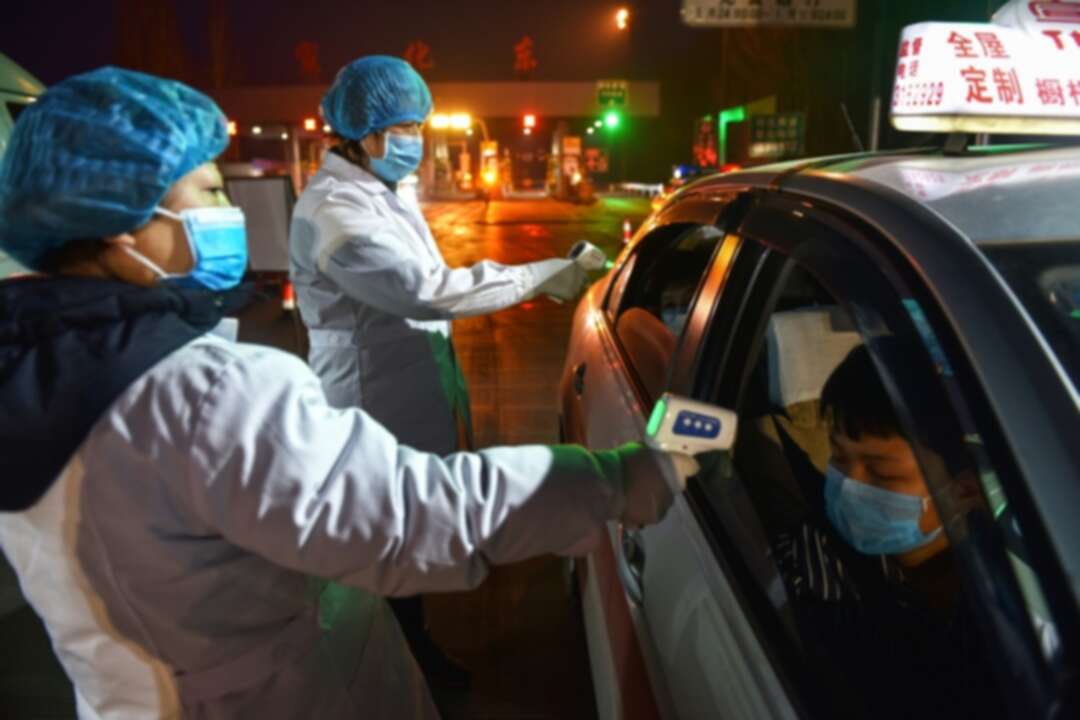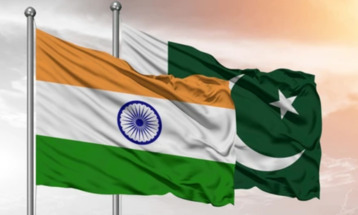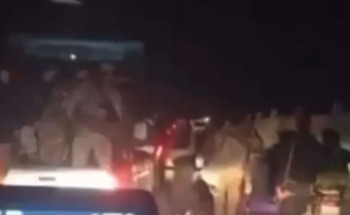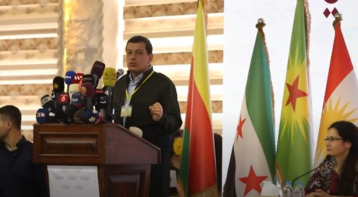-
China virus death toll nears 1,400, six health workers among victims

The death toll from China's virus epidemic neared 1,400 on Friday with six medical workers among the victims, underscoring the country's struggle to contain a deepening health crisis.
Nearly 64,000 people are now recorded as having fallen ill from the virus in China, with officials revealing that 1,716 health workers had been infected as of Tuesday.
The grim figure comes a week after an outpouring of grief and public anger over the death of a whistleblowing doctor who had been reprimanded and silenced by police after raising the alarm about the virus in December.
The scale of the epidemic swelled this week after authorities in central Hubei province, the epicenter of the contagion, changed their criteria to count the number of cases, adding thousands of new patients to their tally.
The health emergency in China has caused fears of more global contagion, with more than two-dozen countries reporting hundreds of cases among them. Three people have died outside mainland China.
The United States accused China of lacking transparency.
The majority of cases of infections among health workers was in Hubei's capital, Wuhan, where many have lacked proper masks and gear to protect themselves in hospitals dealing with a deluge of patients.
Some 80,000 medical workers were involved in combatting the epidemic in Wuhan, the city government said earlier this month.
After the death of whistleblower Li Wenliang, a 34-year-old ophthalmologist in Wuhan, 10 academics circulated an open letter calling for political reform and freedom of speech in the Communist-ruled country.
Under criticism over the handling of the crisis, China's Communist Party sacked two top-ranking officials in Hubei and replaced them with senior cadres with security backgrounds.
Authorities in Hubei province on Thursday started counting patients who were "clinically diagnosed" via lung imaging, in addition to those who undergo lab tests.
The revision added nearly 15,000 patients to Hubei's count in a single day, with officials explaining that past cases were included. The first cases emerged in December in Wuhan.
On Friday, Hubei's health commission said another 116 people had died and more than 4,800 new cases were reported. Of those cases, more than 3,000 were "clinically diagnosed".
The WHO said the numbers included cases going back weeks.
The sharp one-day increase "does not represent a significant change in the trajectory of the outbreak," said Michael Ryan, head of WHO's health emergency program.
The move will ensure patients get treated as early as possible, instead of having to wait for laboratory tests, health officials said.
"There have been some backlogs in testing and this is also going to help in ensuring that people get adequate care," Ryan said.
The National Health Commission said the new criteria would only apply to Hubei.
The commission reported five other deaths and 217 new cases elsewhere in China, as the number of new patients outside Hubei fell for a 10th straight day.
It also disclosed a statistical error, saying it removed 108 previous deaths in Hubei that had been double-counted. The nationwide toll still rose to 1,380.
Authorities have placed some 56 million people in Hubei under quarantine since late last month, in an unprecedented effort to stop the new coronavirus from spreading.
Some cities in Hubei tightened restrictions this week, sealing off neighborhoods in what they liken to "war-time" measures.
Authorities have scrambled to deploy protective equipment to Wuhan's hospitals, where doctors and nurses have been overwhelmed by an ever-growing number of patients.
The government has also built two field hospitals within two weeks and converted public buildings into makeshift clinics to relieve Wuhan's hospitals.
While the WHO has praised China's handling of the epidemic -- in contrast to its cover-up of the SARS outbreak in 2002-2003 -- a top White House official on Thursday said Beijing should be more open.
"We are a little disappointed that we haven't been invited in and we're a little disappointed in the lack of transparency coming from the Chinese," Larry Kudlow, the director of the National Economic Council, told reporters.
Kudlow said President Xi Jinping had assured President Donald Trump that Beijing would accept US help, but "they won't let us".
Kudlow's comments contrasted with Trump's apparent confidence in China, with the US leader telling a radio show that Xi is "extremely capable" and that the US was "working with them" and "sending a lot of people".
Chinese foreign ministry spokesman Geng Shuang said Beijing has had an "open and transparent attitude" with the global community since the start of the epidemic.
"The Chinese side has always a positive, open attitude toward cooperation with the US side," Geng told reporters, adding that US and Chinese health departments have maintained close communication and exchanged epidemic information in a "timely manner".
Several countries have banned arrivals from China, while major airlines have halted flights to and from the country.
The US State Department said it was "deeply concerned" about the vulnerability of China's northern neighbor, North Korea, and offered to support aid work in the country.
source: AFP
Tags
You May Also Like
Popular Posts
Caricature
BENEFIT Sponsors BuildHer...
- April 23, 2025
BENEFIT, the Kingdom’s innovator and leading company in Fintech and electronic financial transactions service, has sponsored the BuildHer CityHack 2025 Hackathon, a two-day event spearheaded by the College of Engineering and Technology at the Royal University for Women (RUW).
Aimed at secondary school students, the event brought together a distinguished group of academic professionals and technology experts to mentor and inspire young participants.
More than 100 high school students from across the Kingdom of Bahrain took part in the hackathon, which featured an intensive programme of training workshops and hands-on sessions. These activities were tailored to enhance participants’ critical thinking, collaborative problem-solving, and team-building capabilities, while also encouraging the development of practical and sustainable solutions to contemporary challenges using modern technological tools.
BENEFIT’s Chief Executive Mr. Abdulwahed AlJanahi, commented: “Our support for this educational hackathon reflects our long-term strategic vision to nurture the talents of emerging national youth and empower the next generation of accomplished female leaders in technology. By fostering creativity and innovation, we aim to contribute meaningfully to Bahrain’s comprehensive development goals and align with the aspirations outlined in the Kingdom’s Vision 2030—an ambition in which BENEFIT plays a central role.”
Professor Riyadh Yousif Hamzah, President of the Royal University for Women, commented: “This initiative reflects our commitment to advancing women in STEM fields. We're cultivating a generation of creative, solution-driven female leaders who will drive national development. Our partnership with BENEFIT exemplifies the powerful synergy between academia and private sector in supporting educational innovation.”
Hanan Abdulla Hasan, Senior Manager, PR & Communication at BENEFIT, said: “We are honoured to collaborate with RUW in supporting this remarkable technology-focused event. It highlights our commitment to social responsibility, and our ongoing efforts to enhance the digital and innovation capabilities of young Bahraini women and foster their ability to harness technological tools in the service of a smarter, more sustainable future.”
For his part, Dr. Humam ElAgha, Acting Dean of the College of Engineering and Technology at the University, said: “BuildHer CityHack 2025 embodies our hands-on approach to education. By tackling real-world problems through creative thinking and sustainable solutions, we're preparing women to thrive in the knowledge economy – a cornerstone of the University's vision.”
opinion
Report
ads
Newsletter
Subscribe to our mailing list to get the new updates!






















